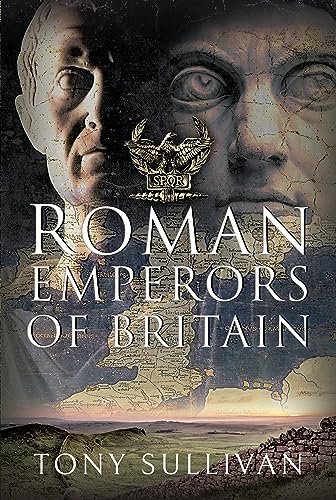

Most ebook files are in PDF format, so you can easily read them using various software such as Foxit Reader or directly on the Google Chrome browser.
Some ebook files are released by publishers in other formats such as .awz, .mobi, .epub, .fb2, etc. You may need to install specific software to read these formats on mobile/PC, such as Calibre.
Please read the tutorial at this link. https://ebooknice.com/page/post?id=faq
We offer FREE conversion to the popular formats you request; however, this may take some time. Therefore, right after payment, please email us, and we will try to provide the service as quickly as possible.
For some exceptional file formats or broken links (if any), please refrain from opening any disputes. Instead, email us first, and we will try to assist within a maximum of 6 hours.
EbookNice Team

Status:
Available4.4
38 reviewsIn 55 BC, on a stretch of beach near Deal in East Kent, the Romans’ first invasion was in great danger of being pushed back into the sea by a host of Britons defending the beach. The eagle bearer of the Tenth Legion jumped into the surf and urged his comrades to follow him, a pivotal moment in Julius Caesar’s first invasion. It was to be another ninety years before Claudius finally subdued part of the island and paraded in triumph into the stronghold at Camulodunum. Roman authority quickly expanded, from Vespasian’s dramatic campaign against the hillforts of southern Britain to Hadrian’s famous Wall in the north.
This book will cover not the reign of Emperors but what posts they held in Britain prior to their achieving the throne. Titus served as a tribune directly after the Boudiccan revolt. Pertinax served in three posts: equestrian tribune of the Sixth Legion; praefectus of an auxiliary unit; and finally as a governor of Britannia. It will cover the civil war between Clodius Albinus and Septimius Severus and the later campaigns into Scotland. The upheavals of the third century and the breakaway regimes of Postumus and Carauius, ‘the pirate king’.
In the fourth century Britain continued to produce usurpers and tyrants but only one managed to unite the empire, Constantine I. His namesake, Constantine III, was to be the last emperor to lead troops from Britain to Gaul, leaving the province to fend for itself into the fifth century.